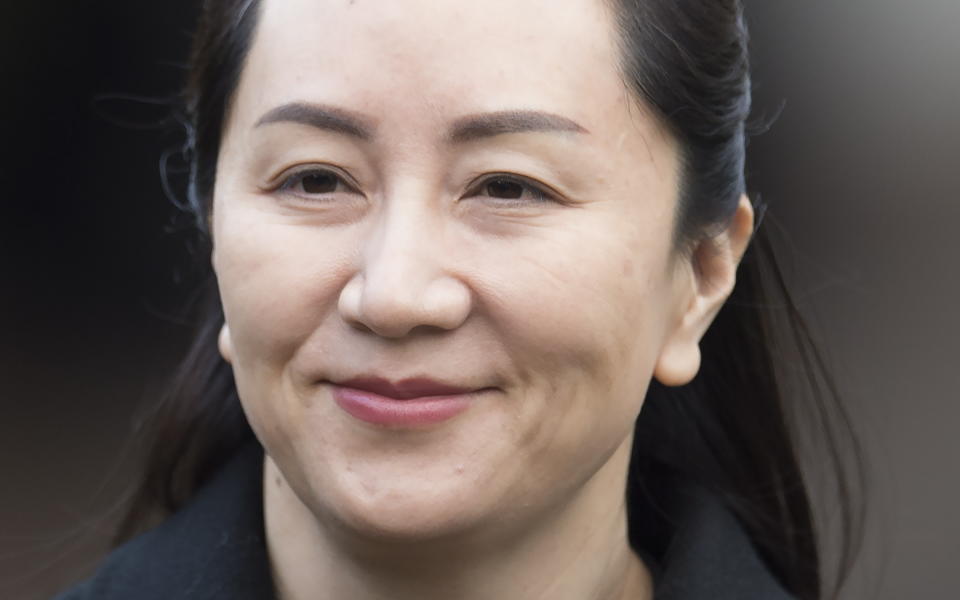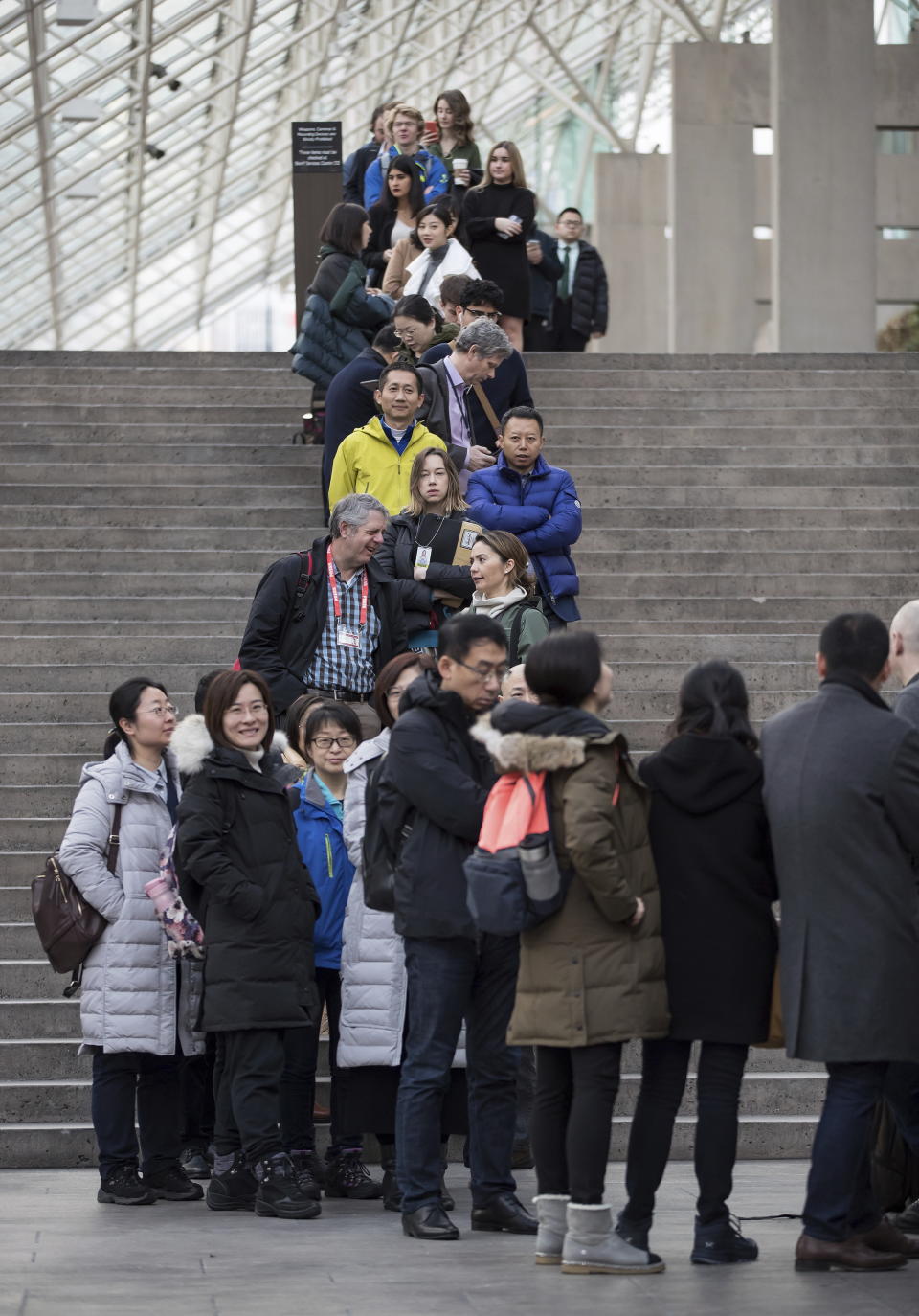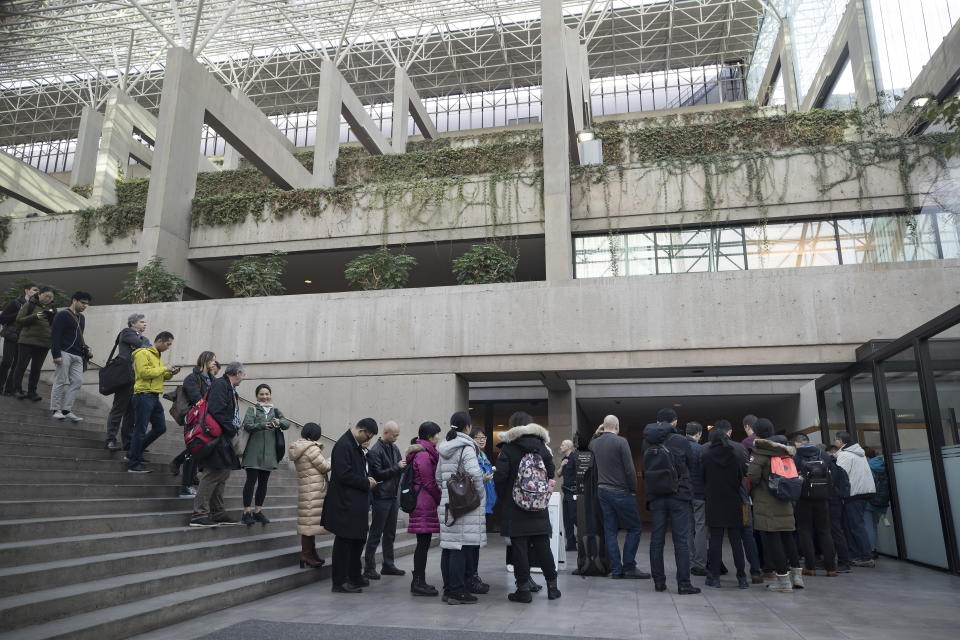Huawei CFO lawyers say her alleged crimes no crime in Canada
VANCOUVER, British Columbia (AP) — Lawyers for a senior executive of Chinese tech giant Huawei argued Tuesday that allowing her extradition to the United States would result in Canada bowing to foreign law.
This week's hearings deal with the question of whether the U.S. charges against Meng Wanzhou are crimes in Canada as well. Her lawyers argue the case is really about U.S. sanctions against Iran, not a fraud case. Canada does not have similar sanctions on Iran.
“Canada doesn’t enforce foreign criminal law," said Meng's lawyer, Eric Gottardi. "We simply cannot import that law and have it operate in Canada domestically. It’s contrary to our values.”
Canada's arrest of Huawei's chief financial officer, the daughter of the company's founder, in late 2018 infuriated Beijing to the point it detained two Canadians in apparent retaliation.
The U.S. accuses Huawei of using a Hong Kong shell company to sell equipment to Iran in violation of U.S. sanctions. It says Meng, 47, committed fraud by misleading the HSBC bank about the company's business dealings in Iran.
Meng, who is free on bail and living in one of the two Vancouver mansions she owns, sat next to the court interpreter. She listened the proceedings with her head down studying documents.
Meng denies the U.S. allegations. Her defense team says comments by President Donald Trump suggest the case against her is politically motivated.
Prosecutors say that Meng's case is separate from the wider China-U.S. trade dispute, but Trump undercut that message weeks after her arrest when he said he would consider intervening in the case if it would help forge a trade deal with Beijing.
Huawei represents China's progress in becoming a technological power and has been a subject of U.S. security concerns for years. Beijing views Meng's case as an attempt to contain China's rise.
Huawei is the biggest global supplier of network gear for cellphone and internet companies. Washington is pressuring other countries to limit use of its technology, warning they could be opening themselves up to surveillance and theft.
Arguments will continue throughout the week.
The second phase, scheduled for June, will consider defense allegations that Canada Border Services, the Royal Canadian Mounted Police and the FBI violated Meng's rights while collecting evidence before she was actually arrested.
In apparent retaliation for Meng's arrest, China detained former Canadian diplomat Michael Kovrig and Canadian entrepreneur Michael Spavor. The two men have been denied access to lawyers and family and are being held in prison cells where the lights are kept on 24-hours-a-day.
China has also placed restrictions on various Canadian exports to China, including canola oil seed and meat. Last January, China also handed a death sentence to a convicted Canadian drug smuggler in a sudden retrial.








